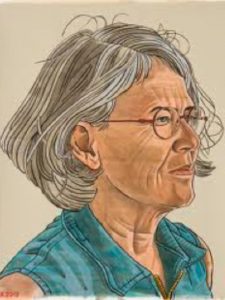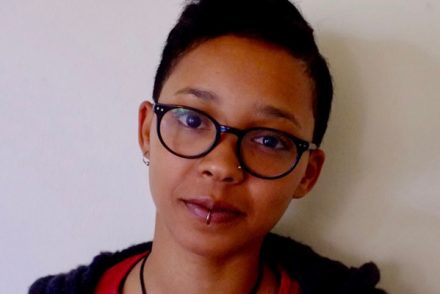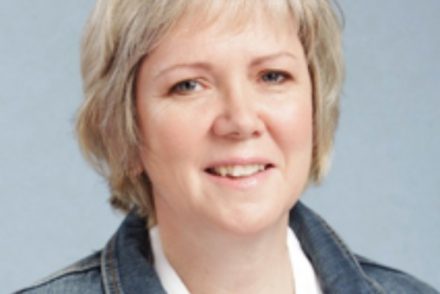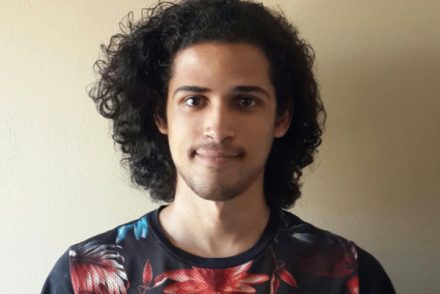PROFILE

Drawing by Anton Kannemeyer
Antjie Krog is an Afrikaans poet, writer, journalist and Professor at the University of the Western Cape. She published twelve volumes of poetry in Afrikaans of which three volumes were compiled with English translations: Down to my Last Skin (2000), Body Bereft (2006) and Synaps (2014). She also published three non-fiction books: Country of my Skull (1998), on the South African Truth and Reconciliation Commission; A Change of Tongue (2004) about the transformation in South Africa after ten years and Begging to be Black (2009) about learning to live within a black majority. Krog has also co-authored an academic book There was this Goat (2009) with two colleagues Prof Kopano Ratele and Nosisi Mpolweni, investigating the Truth Commission testimony of Mrs Notrose Nobomvu Konile. Her work has been translated into English, Dutch, Italian, French, Spanish, Swedish, Serbian, Arabic and Chinese. Country of my Skull and A Change of Tongue have been nominated by South African librarians (LIASA) as two of the ten most important books written in ten years of democracy. She was also asked to translate the autobiography of Nelson Mandela, Long Walk to Freedom into Afrikaans.
Krog had been awarded most of the prestigious awards for poetry, non-fiction, journalism and translation available in Afrikaans and English, as well as the Stockholm Award from the Hiroshima Foundation for Peace and Culture for the year 2000, the Open Society Prize from the Central European University (previous winners were Jürgen Habermas and Vaclav Havel) and Gouden Gansenveer (2018).
CREATIVE WORK
faces executing
how
how write
how do I write
how
this face disconcerts me my existence are being interrupted
by the invasion of this face the face sweats between limits
of holiness and caricature between preach and scream
the face of the other takes me under cross examination
it precedes my understanding it tolls
justice with a restless bounce I am being watched
by all of us this is a call up a spitting fire
a garment of command commanding me: comply!
and the face becomes the foyer of my bewilderment
how
how write
how do I write
how in a way that I can love these cruel vassals of hate
how? the fact is: I don’t love them
– I can’t even endure their faces
there is no will within me to love them
to, despite myself, nevertheless, love them
nowhere in me something is hesitating which can be wedged open
so that I can sufficiently want to want to love them
therefore I have to realise: my not wanting to love them
says something about myself: how veritable
dare I say is my love for you?
love is not like thirst the more I love you
the more I ought to love them
the less I love them the less perhaps I love you
my dearest most defenceless beloved love?
how
how write
how do I write
how in a change-making way that the face is called the foreword
the smell of the brutal nose and the exterminated eye are the nearness
of the command that the face is the miracle wonderfully wounded while we
break face to face across the horizons of the ordinary world
your face conspicuous with the threads and scars from textures you had been dismissed from earlier
announces your bodily-ness: the emblem of dust
of the visibility of us all and the implosion of suffering when I make
eye-contact before the face gawks into the abyss
and then
how
how do I write
how do I write that these men are already myself
that their callous faces are mine that I am lying
there as the dark trampled body at their feet
because I live without akin-ness with them
how
how write
the healing?
(Based on texts of Levinas and JM Coetzee)
REFLECTION
Every one of us needs every one of us, as well as the beauty and resources of the entire world to be fully humane. That would be true Liberty. And in this, writing as a powerful intensifier of the conscience, chasing us into “the clearing of the truth of the world”, is critical and decisive.
PUBLICATIONS
Poetry
Dogter van Jefta (Human & Rousseau 1970);
Januarie Suite (H&R 1972)
Mannin (H&R 1974)
Beminde Antarktika (H&R 1974)
Otter in Bronslaai (H&R 1981)
Jerusalemgangers (H&R 1985)
Lady Anne (Taurus:1989)
Gedigte 1989-1995 (Hond: 1995)
Kleur kom nooit alleen nie (Kwela 2000)
Eerste Gedigte (H&R 2003) (Heruitgawe)
Verweerskrif (Umuzi 2006)
Mede-wete (Human & Rousseau 2014)
English Volumes
Down to my Last Skin (Random House 2000)
Body Bereft (Umuzi 2006)
Skinned (Seven Seas co-published with Umuzi 2013)
Synapse (Mede-wete translated by Karen Press; Human & Rousseau 2014)
Non-fiction
Country of my Skull (Random House 1998)
A Change of Tongue (Random House 2003)
‘n Ander Tongval (Tafelberg 2005)
Begging to be Black (RandomHouseStruik 2009)
There was this Goat (KwaZuluNatal Press 2009)
Conditional Tense – Memory and Vocabulary after the South African Truth and Reconciliation Commission (African List of Seagull Books 2013)
Prose
Relaas van ’n Moord (Human and Rousseau 1995)
Account of a Murder (translated by Karen Press) (Heinemann 1997)
Poetry for young Children
Mankepank en ander Monsters (1989)
Voëls van anderster vere (1992) Buchu Books
Fynbos feetjies (Umuzi 2007)
Fynbos fairies (Umuzi 2007)
Mankepank en Ander Verse (2012)



